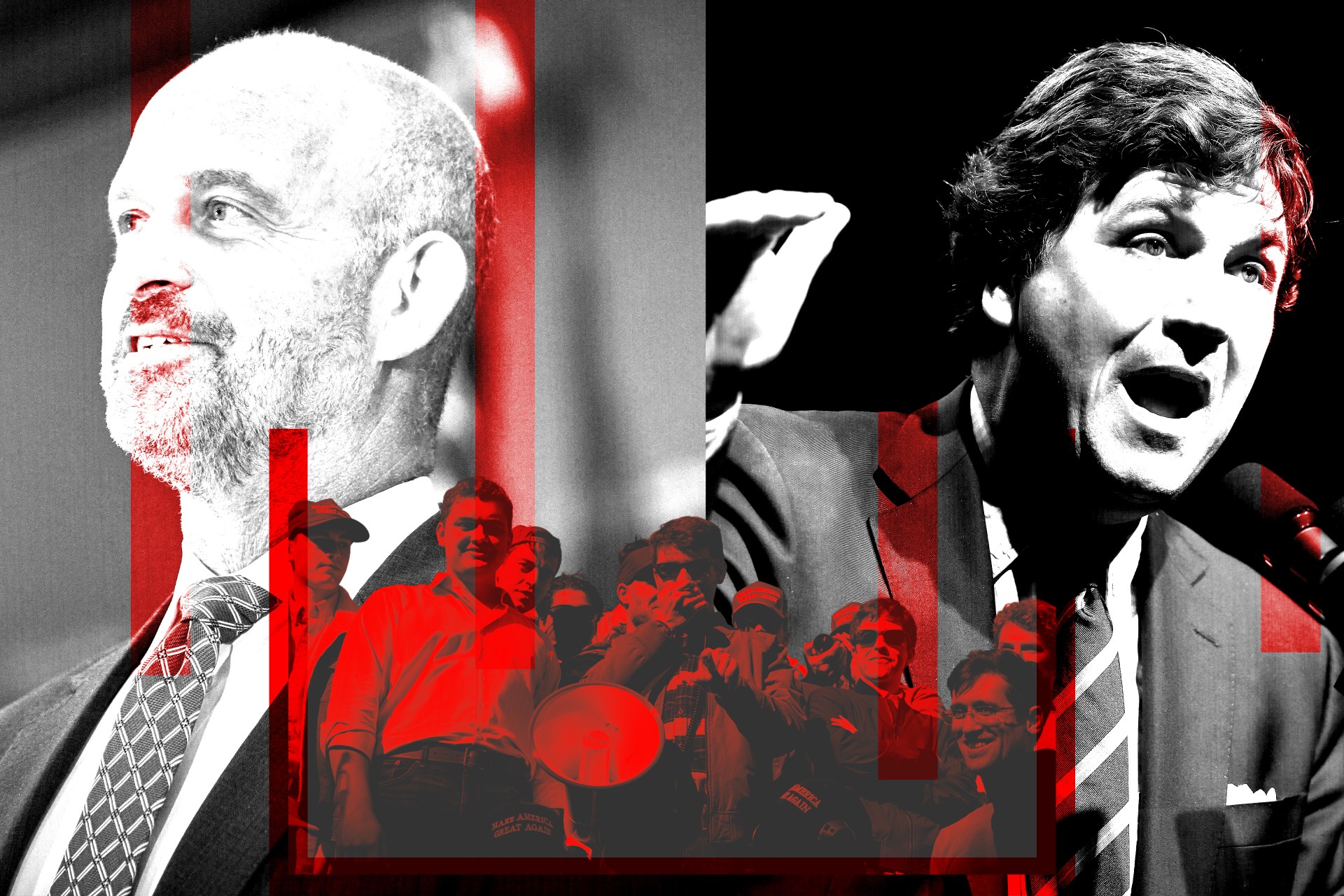The other day, J.D. Flynn, editor of The Pillar, wrote on social media: “I have never once followed Tucker Carlson, Nick Fuentes, Candace Owens or any of these characters. Now I want to know what's happening, and I feel like I need 100 backstories to make sense of any of it. Professional wrestling is easier to follow than commentariat soap operas.”
If you feel a little like Flynn, I hope you check out the new comprehensive report that Michael Warren and I published on the website today looking at the controversy surrounding top-rated podcaster Tucker Carlson, white nationalist Nick Fuentes, and the Heritage Foundation.
While we hope you’ll still appreciate the piece if you’ve been following micro-developments on Twitter, we wanted to make this story accessible to readers with normal lives. We explain the backstory of how we got to this point—where it’s now a live question if a leading conservative institution and the broader movement will tolerate neo-Nazis as fellow travelers—and why it matters for the future of the Republican Party and Vice President J.D. Vance.
—John
Top Stories From the Dispatch Politics Team
On Wednesday, Kevin Roberts, the president of the Heritage Foundation, held an all-hands meeting. Only six days earlier, he had posted a short video defending Tucker Carlson after the former Fox News host had conducted a lengthy and friendly interview with a prominent online neo-Nazi, Nick Fuentes. What took place next, based on recordings of the meeting obtained by The Dispatch and other news outlets, illustrated the stark divide not only within the Heritage Foundation itself but within the broader conservative movement. Conservatives are, at the moment, in a prolonged fight about the political right’s post-Donald Trump future. It’s centered around this specific question: Will traditional conservatism merely evolve into a more populist movement, or will it be supplanted by something much darker and illiberal—a blood-and-soil nationalism in which even neo-Nazis are welcome as fellow travelers?
Coupled with the government shutdown Democrats instigated as leverage to force congressional Republicans to reauthorize Obamacare subsidies, the party’s sweep in New Jersey and elsewhere provided a renewed political purpose and possibility ahead of the 2026 midterm elections, and the White House campaign to follow. “The demise of the Democratic Party’s been way overblown anyway. This just proves the case,” Rep. Herb Conaway, a New Jersey Democrat, told The Dispatch on the sidelines of Mikie Sherrill’s election night celebration in East Brunswick, New Jersey, roughly 35 miles southwest of New York City.
The recent focus on the Federal Reserve, its leadership, and its decisions to lower interest rates has brought renewed public scrutiny of an institution that hasn’t been able to catch a break through the first half of the decade. The onset of the COVID pandemic, the accompanying uncertainty and extraordinary fiscal responses, Congress’ refusal to reduce deficits, generationally high inflation, and persistent political pressure have all presented enormous challenges for the Fed over the past six years. Without a doubt, the nation’s central bank has been in an unenviable position. Yet that doesn’t mean the Fed is above reproach. On the contrary, the level of scrutiny it receives—the good, the bad, and even the misguided—is healthy.
Since the U.S. military launched its first lethal strike on a boat suspected of trafficking drugs off the Venezuelan coast two months ago, the campaign has expanded from the Southern Caribbean Sea to the Pacific Ocean, leaving at least 64 people dead and a few known survivors. Prominent conservative legal scholars have described the campaign as a violation of U.S. law and the principles of just war, but there is no sign that Congress is about to do anything to put a stop to the campaign, even as the Trump administration contemplates strikes on Venezuelan soil and continues to leave the legislative branch largely in the dark.
When Trump won reelection, the obvious question was how Democrats would respond to his second administration. Would they learn from the mistakes they made the first time around or fall right back into the same trap? Optimists argued that Democrats were sure to course-correct. There was a “vibe shift” underway, after all. Exit polls made it unmistakably clear how toxic the party’s stances on cultural issues had become. And some elected officials were even cautiously starting to break rank on a few divisive issues. Pessimists cautioned that the ideological obsession with a particular conception of identity had by now become so deeply entrenched in progressive circles that it would continue to shape the movement’s language and instincts.
Young men in America are having a difficult time. They’re working less, dating less, and facing more mental health challenges than males of previous generations. For years, their struggles have remained in the background as social commentators and policymakers focused on improving the well-being of women and girls. In the aftermath of the 2024 election, however, men’s struggles have come to the forefront. A bipartisan group of lawmakers, policy experts, and journalists gathered in Washington, D.C., this past week for a day-long Symposium on Young American Men, where they discussed policy and lifestyle changes to restore men’s purpose, help them flourish, and ensure they feel that they have an important role in society.
Enjoying our Dispatch Politics Roundup? Consider forwarding this article to someone you know who likes independent, fact-based journalism.












Please note that we at The Dispatch hold ourselves, our work, and our commenters to a higher standard than other places on the internet. We welcome comments that foster genuine debate or discussion—including comments critical of us or our work—but responses that include ad hominem attacks on fellow Dispatch members or are intended to stoke fear and anger may be moderated.
With your membership, you only have the ability to comment on The Morning Dispatch articles. Consider upgrading to join the conversation everywhere.